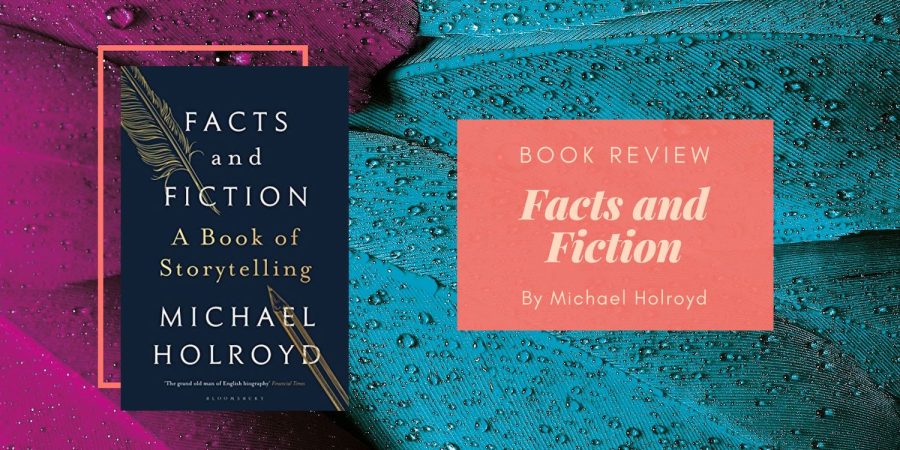I had pretty much forgotten why I had this book on my TBR list but I needed a few more books to read and this was available. Turns out, I was fooled by the subtitle “A book of Storytelling” because this is really a book about biographies and people.
Facts and Fiction is a collection of essays my Michael Holroyd, exploring his process of writing biographies, short essays on specific people and books, and one play that is an inventive biography about The Whispering Gallery, a literary hoax that has since disappeared into obscurity.
What I took away from these essays – apart from the fact that I should try E Nesbit’s books “The Story of the Treasure Seekers” and “The Wouldbegoods” (because apparently they are her “most brilliant fiction”) – is that some things are better read about than read. Holroyd has an essay dedicated to Violet Trefusis and while she had an interesting life, reading about her books made me realise I probably wouldn’t be able to understand or appreciate her books.
Holroyd also mentions “literary biographies”, something that strikes me with fear because I prefer to know what is fact and what is inferred in my biography. My fear was confirmed in Part 3, which was a “play” about how The Whispering Gallery came to be and its famous trial. The Whispering Gallery, from what I understand, was a literary hoax that purported to be by a nobleman who met many key historical figures of that time. However, I also got the sense it was an inventive biography by someone who wanted to tell the essence of truth about people, rather than stick to the facts. While the play format was quite readable, the part of me that wants facts just felt uncomfortable because I didn’t know what was fact and what was fiction – or if any was fiction – in the play. It doesn’t help that a simple search on google doesn’t tell me much about The Whispering Gallery, so I had no way to check on what was mentioned. It was a fairly unsettling experience for me, but I suppose that may be the aim of it.
All in all, this was an interesting book. It reminds me a bit of A Brief History of Biographies but the essay-ish nature of this book makes the lack of linear argument more acceptable. I do feel like I understand the mind of a biographer better after reading this, but I wouldn’t say that my TBR list has been greatly expanded.
Featured Image: Photo from Canva
